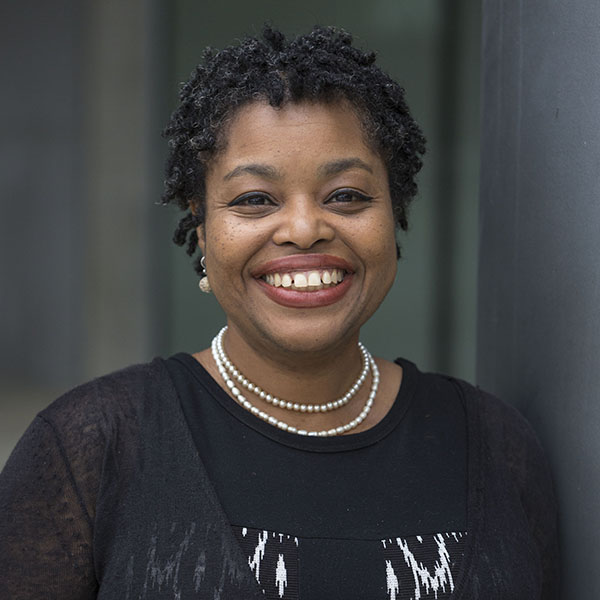by Kim Lamb Gregory
 Creative writing and literature helps make us human – even in inhuman places. Associate
Professor of English Raquel Baker learned this truth while working as a writing tutor
for the Prison University Project at San Quentin State Prison in the San Francisco
Bay Area.
Creative writing and literature helps make us human – even in inhuman places. Associate
Professor of English Raquel Baker learned this truth while working as a writing tutor
for the Prison University Project at San Quentin State Prison in the San Francisco
Bay Area.
“I taught incarcerated men who were trying to earn their high school equivalency diploma,” Baker said. “They all wanted to be there, because they could take classes from people who did not think of you as a criminal, but as a human being.”
Some of her incarcerated students were on death row, and would never again be free, but they still wanted to grow.
Because we are all human, it benefits people of all races, ethnicities and backgrounds to learn about this mosaic that makes up the global human experience, Baker believes. It’s why Black Studies and observing Black History Month is beneficial for all human beings, not just students with roots in African American history.
“Whenever we understand the whole of human experience, we understand ourselves,” Baker said. “If you are a younger person living on the planet right now and you don’t understand the way the Black experience is integrated into US History, you don’t have a full understanding of US History.”
Baker works with a team of faculty who teach CSUCI’s Africana Studies minor, but her classes are largely in African literature, which has become one area of passionate interest over her academic career.
“My training is on literature from the continent of Africa,” she said. “I think the reason I got interested in Africa and African literature is because very little was taught to me growing up. Studying African literature helped me understand myself more as a Black woman.”
Baker grew up with one younger brother in the San Francisco Bay Area with a mom who was an English teacher and a dad who worked in computers and served in the military.
She believes her interest in storytelling and literature began when she was about eight.
“I’m sure my parents read me stories, but I also played Barbies, which was always very theatrical,” she said with a grin.
Baker earned her bachelor’s degree in psychology from San Francisco State University and her Master of Fine Arts in Creative Writing from Mills College in Oakland. She went on to earn a Ph.D. in English Literary Studies from the University of Iowa because “my dad was from the Midwest and told me Iowa City was the Berkeley of the Midwest,” she said.
She developed a specialty in Postcolonial Studies and 20th- and 21st-century African literature, which she said helped her develop contrasts between the Black experience in Africa and in the U.S., all of which she integrates into her courses.
“I think that teaching Black literature broadly at a university like CSUCI, where many students are working class or have never left the county of Ventura is a way to expose them to the world outside of the United States, whether or not they have ties to Blackness,” Baker said.
Aside from classes in creative writing and multicultural literature, Baker teaches more specialized courses like Black Horror and AfroCyberPunk, a form of Black science fiction popular in the 1980s.
Since Baker arrived on the CSUCI campus in 2017, she has seen and advocated for a lot more of a Black presence on campus, such as the Black Studies major, and the cluster of Black faculty members hired in 2022, referred to in academia as a “cluster hire.”
It’s still working its way through the approval process, but Baker is also working with a team of faculty developing a new Black Studies major at CSUCI, which she hopes to see launched in the next two years or less.
